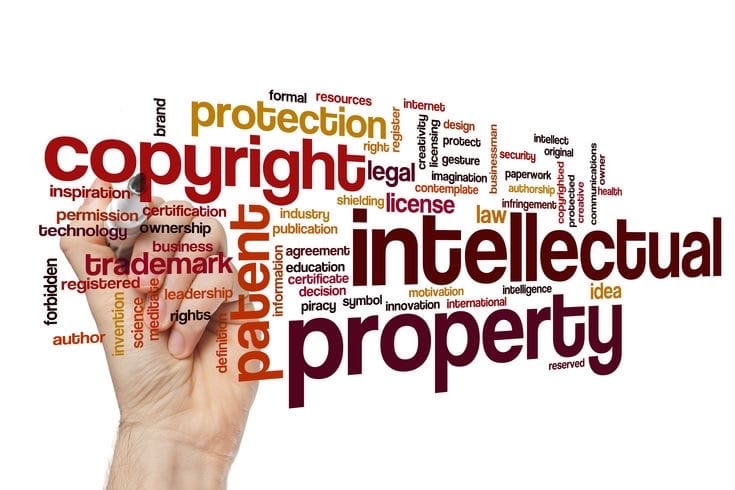The Nigerian intellectual property laws exist to protect the rights of intellectual property owners or creators in Nigeria. These laws cover intangible properties, such as literary works, names, inventions, designs, artistic works, symbols, etc. They help owners of these properties establish legal ownership of them and prohibit others from using them indiscriminately.
Presently, four major legislations protect the various intellectual property rights in Nigeria.
In this guide, we will explore these legislations and discuss the various intellectual property rights types in Nigeria. We will also outline the step-by-step guidelines for protecting Intellectual Property rights in Nigeria. Let’s dive in!
Table of Contents
Legislations For Intellectual Property Protection in Nigeria
The primary legislative enactments protecting Intellectual Property (IP) rights in Nigeria include:
- The Copyright Act
- Trade Marks Act
- Patents and Designs Act, and
- The Trade Secrets Act
-
The copyright act
The Nigerian Copyright Act of 2022 protects creative works. This includes:
- Literary works
- Artistic works
- Musical works
- Sound recording
- Audiovisual works, and
- Broadcasts
The act prohibits unauthorized usage, reproduction, distribution, public performance, or adaptation of copyrighted works without the copyright owner’s permission. Under this act, the Nigerian Copyright Commission (NCC) oversees all copyright matters and enforces copyright laws.
-
Trade marks act
The Trade Mark Act covers the registration and protection of trademarks. It establishes procedures for trademark registration and sets out penalties for trademark infringement.
-
Patents and designs act
The Patent and Designs Act protects the rights of inventors over their inventions for a period. When a design, machine, device, chemical composition, or manufacturing process is patented, the patent act prohibits its independent development.
In other words, the inventor who owns the patent is given exclusive rights, which excludes others from independently making, using, or selling the invention for a fixed period. An invention can be patented if it meets the following criteria:
- It must be new.
- It must have an industrial application.
- It must be the result of an inventive step.
-
Trade secrets act
The trade secret act was implemented to protect the confidentiality of certain business information or trade secrets. It prohibits the unauthorized disclosure or use of confidential business information that may be sold or licensed.
Types of Intellectual Property Rights in Nigeria
The four major intellectual property laws govern and protect the following intellectual property rights in Nigeria:
-
Copyright
As stated earlier, copyright applies to creative works such as art, writing, music, graphic designs, architectural drawings, films, computer games, etc. Creative material is copyrighted to prevent others from using, copying, or distributing it without express permission or agreement with the original creator. Once a creative material is copyrighted, the copyright remains valid until 70 years after the original creator’s death.
-
Patents and industrial designs
Patents are applied to inventions. They give inventors exclusive rights over their inventions for a specified period. This means that once an invention or industrial design is patented, no other individual or organization can reproduce, use, or sell the invention independently without the inventor’s consent.
A patent is usually valuable for 20 years. This helps inventors reap the maximum benefits of their invention for that specific period while preventing unlimited monopoly over it. Patents are usually territory-based; a patent can only be enforced in the country where it is registered.
-
Trademarks
Trademarks are signs individuals or enterprises use to distinguish their goods or services from those of others. It could be a phrase, word, letter, label, numeral, colour, signature, or device. Trademark infringement occurs when a trademark or an identical mark is used without the owner’s consent and is confusing or misleading to the public.
-
Trade secrets
A trade secret is valuable information that serves as a competitive advantage for a business. These pieces of information are confidential and usually protected by non-disclosure agreements.
So, if they are acquired or disclosed in a way that is contrary to honest commercial practices, it is regarded as a violation of the trade secret act, and it attracts legal penalties.
Are you a writer? Do you desire to hone your writing skills? If so, join the Insight Writers Community.
Registration of Intellectual Property Nigeria
To legally protect any intellectual property in Nigeria, it must be registered. A proper registration gives owners legal ownership over the registered property and protects it from infringement. Different intellectual properties have different registration procedures and different bodies that oversee them.
-
Copyright
Unlike other intellectual properties, creative materials don’t necessarily require registration to be copyrighted. Copyright is usually assigned upon the creation of such materials.
However, the Nigerian Copyright Commission (NCC) creates a data bank of authors’ works. So, instead of registering in a registry, creatives only have to notify the NCC of their works to establish evidence of the work’s existence and date of creation.
-
Patents
The registrar’s office, Patent and Industrial Designs, Federal Ministry of Commerce, Abuja, handles patent applications and issuance in Nigeria. To apply, applicants must submit the following documents:
- A petition or request for a patent consisting of the applicant’s full name and address.
- If an agent makes the application, a signed power of attorney authorization of the agent should be included.
- Declaration by the actual inventor where applicable.
- Plans and drawings, if any, in duplicate.
- A specification including a claim or claims in duplicate.
The application is examined upon submission, and the patent is issued if all statutory requirements are met. Payment of a specified application fee is also required of all applicants.
-
Industrial designs
The office of the registrar also oversees the registration of industrial designs. The following documents are required:
- A written design registration request.
- Applicant’s full name and address.
- A photographic or graphic representation of the design.
- An indication of the kind of product for which the design will be used.
Applicants are also required to pay a specified application fee. A registration certificate will be issued if the application complies with all requirements.
-
Trademarks
Registering a trademark also requires application to the office of the registrar. To register, applicants must submit the following documents:
- The name and address of the trademark proprietor.
- Duly completed authorization of agent form.
- A representation of the trademark.
- An indication of the class of goods and services the trademark represents.
The application is acknowledged and reviewed upon submission to examine the trademark’s distinctiveness or similarity with other registered trademarks. The application is accepted, and the trademark is published if all requirements are met.
The trademark can, however, be opposed after its publication. In this case, the registrar’s office will invite the parties involved for a hearing, after which a decision on whether or not to proceed with the trademark registration will be made.
-
Trade secrets
Unlike copyrights, patents, or industrial designs, trade secrets are kept confidential. It usually involves employees and partners signing a non-disclosure agreement with businesses or enterprises. A breach of this agreement attracts legal penalties.
Infringement of Intellectual Property Rights in Nigeria: Enforcement Mechanisms
Infringing or violating intellectual property laws in Nigeria attracts legal penalties. For example, when a person violates copyright laws by adopting a copyrighted work without the author’s permission, they are required by law to pay the actual dollar amount of damages and profits for each work infringed.
The infringer could also face jail penalties. Likewise, the penalty for trademark infringement is the payment of a trademark infringement fee, jail term, or both.
Also, when a person infringes on patents or industrial designs through commercial or industrial usage without required authorization, the patent holder can sue for infringement. The patent holder is entitled to payments of damages, injunction, accounts, or profits as ordered by the court.
Despite these strict legal penalties, intellectual property infringement is still an issue in Nigeria. There Is, therefore, a need to enforce established legislation to deter infringement. Creators can enforce their intellectual property rights by:
- Seeking legal action.
- Regularly monitoring for potential infringements.
- Exploring alternative dispute resolution options.
- Creating awareness, etc.
Conclusion
Understanding intellectual property rights in Nigeria is crucial for entrepreneurs and creators to safeguard their innovations and creative works.
It is also essential to enforce established intellectual property laws to effectively deter infringement and foster a culture of respect for intellectual property rights, ultimately promoting innovation, creativity, and economic growth in the country.
Read also:
- Freedom of Expression in Nigeria: Balancing Rights and Responsibilities
- How to Conduct a SWOT Analysis For Your Business.
- Climate Change and Environmental Policies in Nigeria: Urgent Action Needed?
Subscribe to our newsletter to receive notifications of our latest articles on Business Insights, Entrepreneurship, Career, Technology, etc.
Edited by Oluwanifemi Akintomide.
About Author
- Olutayo Inioluwa Emmanuel is a versatile, creative, results-oriented content writer with over five years of experience. He excels in creating engaging short-form and long-form content, blending creativity with strong research skills. Adding to his strengths, Olutayo strategically employs SEO best practices to enhance visibility and engagement.
Latest entries



 LifestyleFebruary 10, 2024Where to Find and Download Quality Free Books Online
LifestyleFebruary 10, 2024Where to Find and Download Quality Free Books Online

